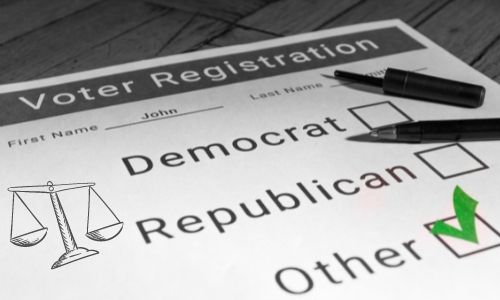Judges in the U.S. make important decisions every day that can affect the lives of all citizens. If you’re going to run for judge, you will need to know what is needed to campaign for the office.
Here are some ideas of what to expect and how to prepare if you’re thinking about running a campaign for judge.
What types of judges are elected to office?
The role of a judge is to serve the public by making impartial decisions. Judges that are elected by voters serve for a limited period of time. While on the bench, they are expected to act as the unbiased authority on the law.
Some judges are elected by the people of the county they represent, but many of the most influential judges at the state level are appointed or approved by senior politicians. The types of judges that may run for office include:
- Municipal court judges
- County court judges
- Magistrates
- Justice of the peace
For locally elected judges, the specific rules regarding elections vary by state. Variables include the length of the term, when elections occur, and the maximum number of terms a judge can serve.

County and municipal judges and magistrates are often elected by voters.
What skills do you need to be a judge?
Judges play an integral part in our society. They have the responsibility of interpreting the law and applying it fairly to ensure that justice is done. This is difficult job, and judges need to be qualified for the position.
To become a judge, one must be licensed to practice law after receiving their J.D degree from an accredited institution. Lawyers or attorneys that want to become judges often have years trial experience and are familiar with the working of court. They may serve as either prosecutors or defense attorneys.
The qualities and skills of successful judges include:
- The ability to think logically and analytically
- To understand written case law
- An understanding of the human condition
- The ability to be unbiased and impartial
- To be respectful towards all parties in court
- To be patient, have a sense of humor, balanced, fair and open minded.
What does it mean to be a “Good” judge?
A good judge is someone who can take in information, organize it, and form a decision. This person would have to be unbiased, open minded, logical, and fair to all parties involved in a case.
Why do you want to run for the position?
There may be a number of reasons why you are interested in becoming a judge. It may be to hold a position of prestige and power. It might be because you care about the legal system and want to make it work better. At some point, you will be asked that question by a voter or reported. It’s better to have your reasons prepared ahead of time.
Common reasons why people run for judge:
- You want to play part in making the legal system work better for everyone.
- You value fairness and accountability in applying the law.
- You want to stand up for what is right, even if it not popular with public opinion or powerful moneyed interests.
- You want to see that the principles of the Constitution are upheld within the courts.
Whatever your reasons, you should be authentic in what you will stand for as a member of the judiciary.
Are judicial elections partisan or non-partisan?
It’s not necessary for the candidate to be affiliated with any political party when running for judge. Judges in the United States are usually required to be nonpartisan, meaning that they can’t show favoritism to a political party. Therefore, judges in this situation must remain non-partisan when they are campaigning for election.
However, some states allow judicial candidates to compete in partisan elections. The idea behind this is that it makes it easier for the public to hold judges accountable for their decisions.

Judicial elections are often non-partisan.
What are the requirements for becoming a judge?
The process of running for judge is not easy. There are certain requirements that must be met.
In most states, eligibility requirements depend on age, residency, and criminal conviction. Some states have additional requirements to run for office.
There are states which require the candidate to be a lawyer. Other states require the candidate only to have an active law license.
Additional requirements may include that the candidate must be a citizen, that they be a practicing lawyer or judge, and that they reside in the district where they seek the office.
And on top of that, they must win their election.
Running an effective election campaign
In some ways, running judicial campaign is similar to other political positions. For example, there are expenses such as printing costs, signage and advertising.
Many judicial candidates will build a campaign website to promote themselves. However, candidates are often limited as to when they can start the site and are subject to strict standards of conduct. For example, a judge must shut down their campaign site after they are seated to the bench.
There are many restrictions on judicial candidates, and they vary from state to state. For example, campaigning activities are often limited to specific time periods. They cannot receive donations from any parties or organizations with a stake in the case before them. They may be limited on how they can use social media.
Candidates running for judge are not allowed to use public funds for campaign purposes. They may also be limited as to when and how they can fund raise.
Judges often cannot actively seek endorsements from organizations or individuals. This is the most common way traditional political candidates gain visibility and credibility to help get elected.
Taking positions on the issues … or not
Judicial nominees are prohibited from taking a position on any issue that could potentially come before the courts because it could affect the way they might rule on cases with similar facts.
This limits the messaging options to general platitudes, and this is one of the reasons why judicial elections tend to be ‘boring’. Voters often know little about any candidates for judge, and simply cast a ballot for the candidate with the most name recognition.
Because name recognition is one of the most important factors in winning, judges need to do all they can to promote themselves. The most common ways to advertise are through mailings, radio and TV ads and online ads, such as IP targeting.
Now that you have a basic understanding of the qualifications required to run for judicial office, it’s time to start campaigning!
Related:
- So You Want To Run For Judge? Here’s How To Get Started
- A List of Our Best Judicial Campaign Slogans
- Local Election Laws And Your Campaign Website
- Judicial Logo Design
Start your judicial campaign website with Online Candidate. With simple pricing and easy to use features, we help hundreds of candidates each election cycle.
Handling Negative Posts About Your Campaign »
Tags: election law, judges








